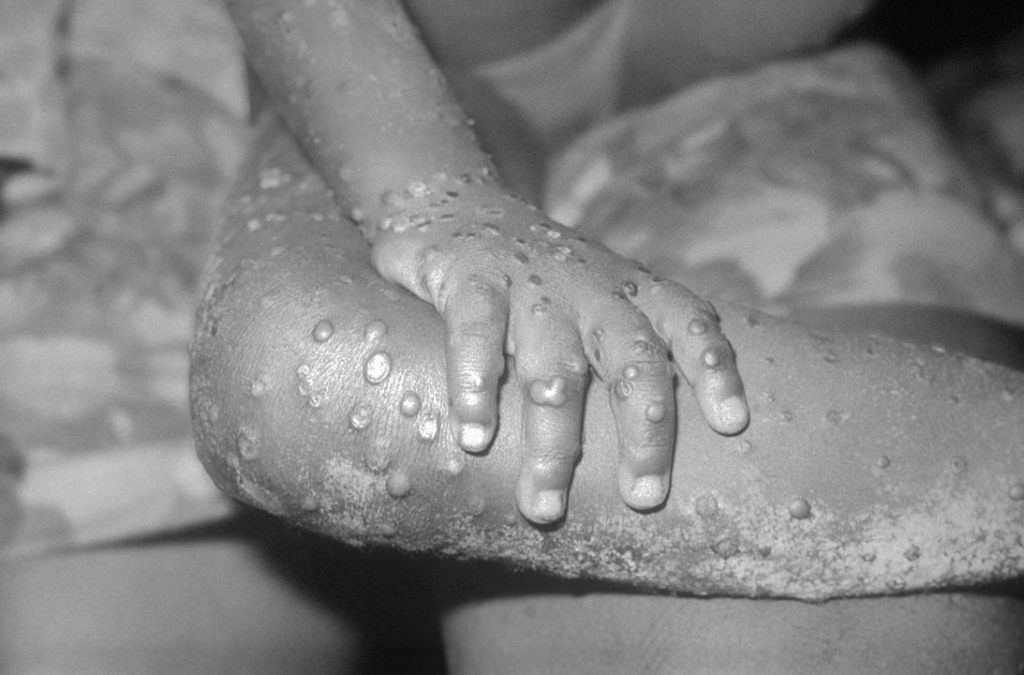
South Africa has recorded its first case of monkeypox Thursday, 23 June. Health Minister Dr Joe Phaahla said that he received a report from the National Health Laboratory Services’ CEO that lab tests have confirmed the first case of monkeypox in South Africa, a 30-year-old man from Johannesburg.
The South African Health Products Regulatory Authority (SAHPRA) has prepared information on monkeypox symptoms and treatment. However, the pharmaceutical treatments for it (tecovirimat and brincidofovir) are not registered in South Africa.
Symptoms and epidemiology
The monkeypox virus causes symptoms similar to smallpox, but less severe. Symptoms include:
- Skin rash
- Headache
- Swollen lymph nodes
- Muscle and body pains
- Back pain
- Weakness
The monkeypox virus is endemic to Central and West Africa in two distinct clades with differing severities: the West Africa (< 1% case fatality rate) and the Congo Basin (11% case fatality rate). Human-to-human transmission can occur via contact with bodily fluids, skin lesions or internal mucosal surfaces such as the mouth or throat, respiratory droplets, and contaminated objects.
The polymerase chain reaction (PCR) test is the best, most reliable testing method, and the best specimens are sourced from rash, fluids or crusts. Antigen and antibody detection are not accurate.
Since 15 June 2022, 2 103 laboratory confirmed cases of monkeypox, one probable case, and one death have been reported to the World Health Organisation (WHO) from 42 countries. Endemic countries include Benin, Cameroon, Central African Republic, DRC, Gabon, Ghana, Ivory Coast, Liberia, Nigeria, Sierra Leone and South Sudan. To date all cases have been identified as being infected by the West African Clade.
Cases have been identified in South Africa, Australia, Belgium, Canada, France, Germany, Italy, The Netherlands, Portugal, Spain, Sweden, UK, and the USA.
Information suggests that this is common among homosexual men and who seek treatment and care at healthcare institutions. Furthermore, those at risk are individuals who have had physical contact with someone with monkeypox.
Monkeypox management and treatment
Any patient with suspected symptoms should be investigated, and if confirmed, isolated until such time that their lesions have crusted, scabs have fallen off and a fresh layer of skin has formed.
According to the National Institute Communicable Diseases (NICD), this type of infection does not require specific treatment as the disease does resolve on its own. Currently in South Africa, there is no specific vaccine registered for monkeypox; however, the Varicella Zoster is registered for smallpox.
There are no specific treatments for the Monkeypox infection, but outbreaks can be controlled. The Food and Drug Administration (FDA) has approved tecovirimat (TPOXX) and brincidofovir (TEMBEXA) for the treatment of smallpox; however, these have not been registered in South Africa.
It is important to note that most human cases of Monkeypox resolve within 2–3 weeks of being infected without side-effects. Also, an infected person is infectious at the start of the rash/lesions through the stage when scabs form. However, when these scabs fall off, the person is no longer contagious.
Source: SAHPRA

